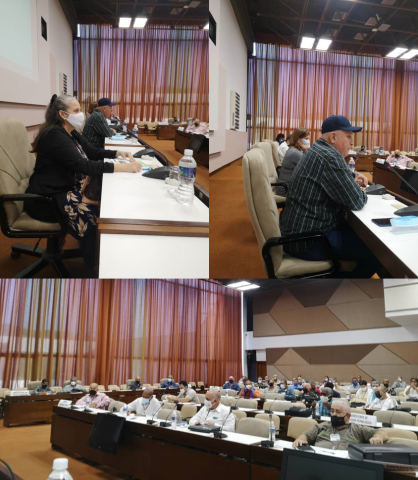The ESCEG participates in the assessment of the competency profiles of the cadres of the Agricultural Business Group

On December 1, as part of the 63 measures approved for the agriculture sector in Cuba, the competency profiles of the cadres of the Agricultural Business Group are presented. With this activity, measure 52 and the provisions of the Cuban cadre and reserves work system are complied with. This activity, led by the Rector Dr. C. Mercedes Delgado Fernández and the Director of cadres of the Ministry of Agriculture, MSc. Julia Muriel Escobar, began several months ago with the training of the Heads of cadres of the sector at the Superior School of State and Government cadres.
This second training was directed to the cadres of the Agricultural Business Group and the Directors of Companies of the country, which constitutes a Training for the management teams. You learn by doing and each manager participated in the development of their skills profile, with an integrated job with the Director of Human Capital, the Chief of Staff and the Director of the Business Group, Frank Castañeda. The self-assessment and evaluation of the heads of the existing competencies in each cadre will lead to the determination of training needs, the next step to be followed and in turn the definition of the plan for improvement and preparation of cadres.
Collective learning has made it possible to identify among the main skills to be fostered in cadres, strategic direction, innovation and the closure of Research, Development and innovation (R & D & I) cycles, results orientation, capacity to form cadres, self-improvement, economic and financial management, commercialization, internal control, national security and defense, coordination between all actors to the base as well as the legal, which together with the values as revolutionary cadres were highlighted as part of training. In the same way, the basic and specialized training requirements, the minimum management time to be filled in the position, the promotional transit and the required knowledge were determined for each position, which includes those of the activity to be developed, the normative and legislative, as well such as those related to Information and Communication Technologies.
